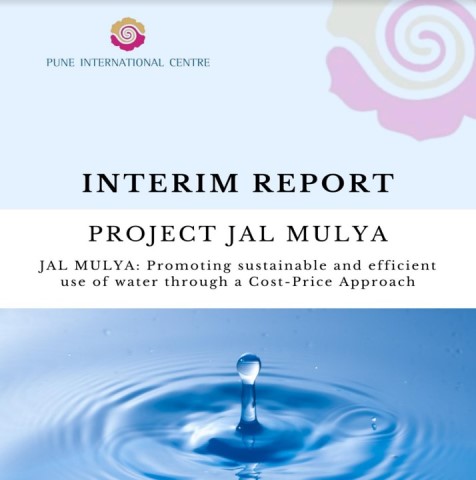
INDIA: The Indian cities are facing rapid urbanisation leading to increasing demand for water. Changing weather and precipitation patterns, depleting groundwater levels, and increasing temperature are known to affect water availability thus leading to uncertainty in urban water supply. Most of the Indian cities are going through this, Bangalore being the recent example.
The rapid economic growth in Pune has attracted a significant influx of people from across the country. The rapid growth of economic opportunities in Pune, its benign climate, educational facilities, and ample water resources have led to a rising influx of people from across the country. However, rising affluence and changing lifestyles have led to an increase in per capita consumption of water. This, coupled with less reliable rainfall due to shifting climate patterns, has raised concerns over potential water shortages, which could disrupt both city life and the thriving economy. It is therefore imperative to proactively address the challenges to safeguard water supply and bolster both social well-being and economic stability. A climate-resilient approach is crucial for ensuring sustainable water security over time.
The study’s rationale centers on the critical importance of ensuring adequate and high-quality water for all residents in conventional cities and smart cities.
Unfortunately, Pune’s water resources also face challenges such as rainfall becoming less predictable, depleting groundwater levels, changing climatic conditions, and increasing competitive demands across all sectors.
These are, along with rising concerns about water availability, leading to water supply shortages, disrupting not only daily life but also the city’s thriving economy. Thus, it’s crucial to anticipate and address these challenges proactively.
A collaborative effort of the Pune International Centre (PIC); Centre for Sustainable Development (Gokhale Institute of Politics and Economics); and the Pune Knowledge Cluster, the proposed “Jal Mulya” project aims to evaluate the true cost of water services and pricing structures in Pune and Pimpri-Chinchwad. It recognizes the critical importance of ensuring adequate and high-quality water supply, which is fundamental to enhancing livability and fostering economic growth. The project’s rationale lies in promoting a climate-resilient approach to ensure sustainable water security over time.
The objective of the study is: To understand the real cost of water at the level of Urban local bodies.
One of the project’s key goals is to bridge the gap between citizens’ perception of water prices and the actual costs, factoring in economic externalities. By understanding the real costs incurred by administrative bodies for water acquisition, treatment, distribution, and wastewater management, the project seeks to develop evidence-based policies that rationalize water tariffs.
These policies aim to promote fairness, equity, efficiency, and sustainability in water pricing, thus stimulating the market for treated wastewater and reducing demand for fresh water.
Expected outcomes
1. A comprehensive report assessing the real costs of urban water services.
2. Development of a template for evaluating urban water supply costs.
3. Policy guidelines for rationalizing urban water tariffs and pricing structures.
As a long-term vision, it is necessary to have a sustainable water management plan for Pune Metropolitan Region and this current study will be a way to understand the problem of urban water management.
It will also help in developing a STEP approach- Societal engagement, Technology, Economic model, and Policy initiatives. This study will aim to develop a framework of the same and this framework can then be used as a template for other cities as well.
Despite efforts by governments and administrations, water supply and treatment projects often operate at a loss due to lax revenue generation and enforcement of user charges. The project aims to test the hypothesis that citizens perceive water prices to be lower than the actual costs, considering economic externalities. It also seeks to establish the true cost of water services borne by administrative bodies, covering acquisition, treatment, distribution, and wastewater management. The ultimate goal is to develop a standardized template for nationwide use in India. The analysis will inform evidence-based policymaking to rationalize water tariffs, promoting fairness, equity, efficiency, and sustainability. The report includes valuable insights from the roundtable (Jan. 12, 2024) and stakeholder discussions.
